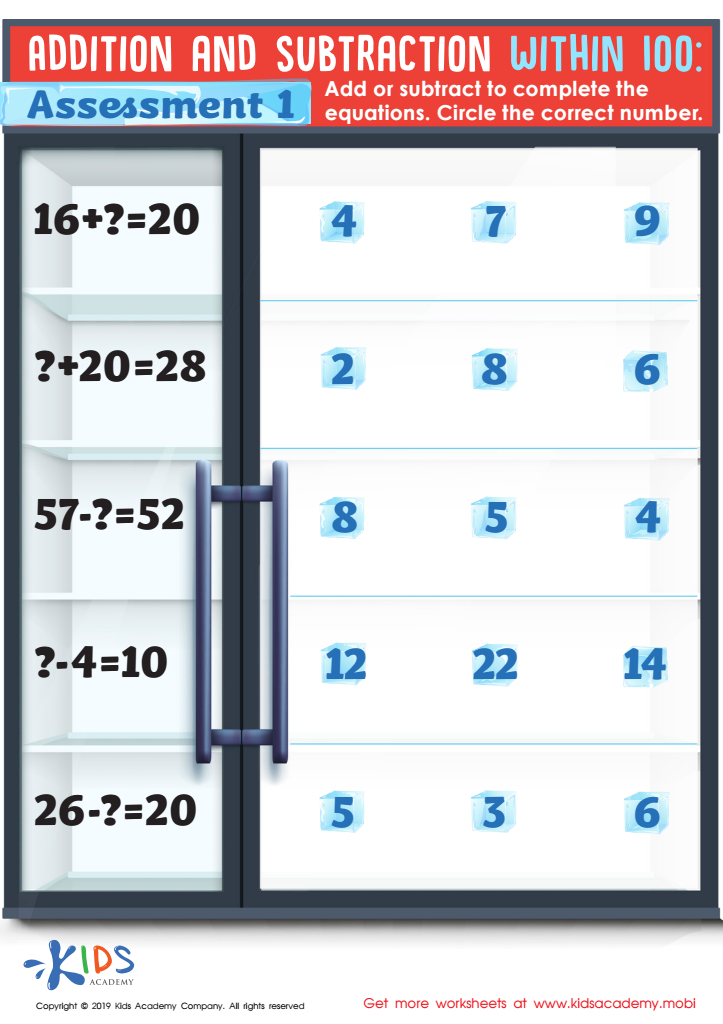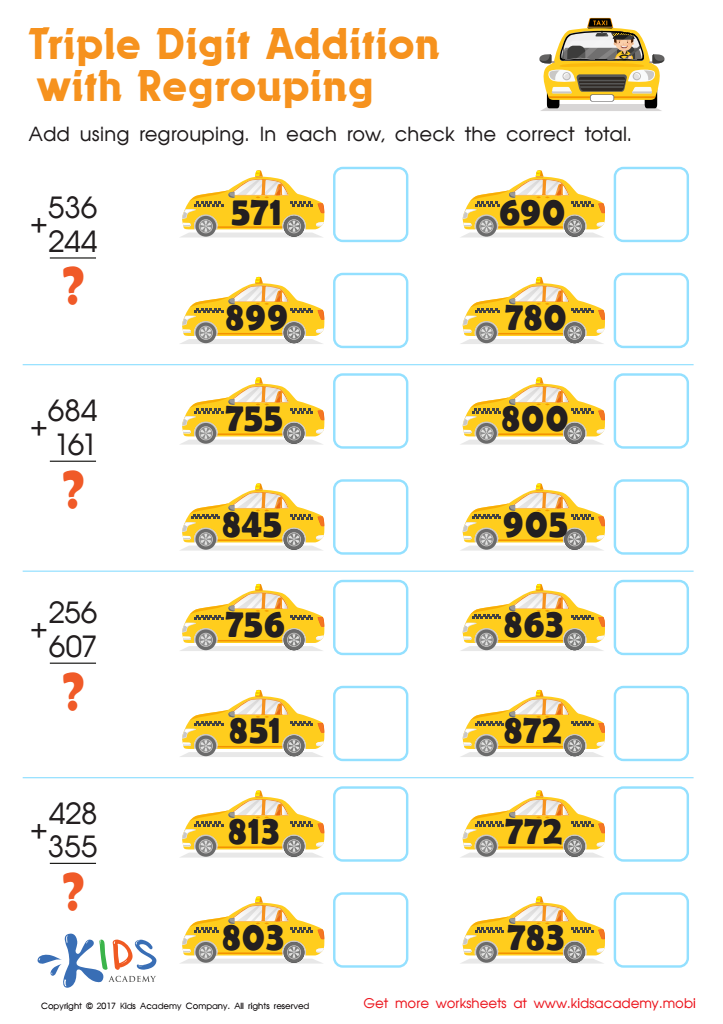Improve problem-solving abilities Math Worksheets for Ages 8-9
3 filtered results
-
From - To
Enhance your child’s mathematical problem-solving abilities with our engaging math worksheets designed specifically for ages 8-9. These worksheets provide a fun and interactive way for young learners to tackle challenging problems while building essential skills. Featuring a variety of exercises, from word problems to logic puzzles, each worksheet encourages critical thinking and fosters a deeper understanding of mathematical concepts. Parents and teachers will appreciate the structured approach that helps students learn at their own pace. Perfect for classroom use or home practice, our worksheets are an excellent resource to build confidence and proficiency in math. Start improving your child’s problem-solving skills today!


Addition and Subtraction within 100: Assessment 1 Worksheet


Triple Digit Addition with Regrouping Worksheet
Improving problem-solving abilities in mathematics for children aged 8-9 is crucial for several reasons. At this age, children are transitioning from basic arithmetic to more complex concepts that require logical thinking and critical analysis. Developing strong problem-solving skills helps children learn how to approach challenges systematically, breaking them down into manageable steps. This indicative ability not only fosters an understanding of math but also builds confidence, encouraging children to tackle difficult problems rather than shy away from them.
Moreover, strong mathematical problem-solving skills are foundational for future academic success across disciplines. Math is not just about numbers; it integrates logic, reasoning, and analytical thinking. These skills are transferable and applicable in real-life situations, enabling children to make informed decisions, solve everyday problems, and enhance their creativity.
For parents and teachers, nurturing these skills can lead to a more engaged and motivated learner. When children experience success in solving problems, it reinforces their self-esteem and intrinsic motivation to learn. This early foundation is essential for cultivating a lifelong love for learning and resilience in facing challenges, preparing them for the complexities of future educational pathways and everyday life.
 Assign to My Students
Assign to My Students








.jpg)













